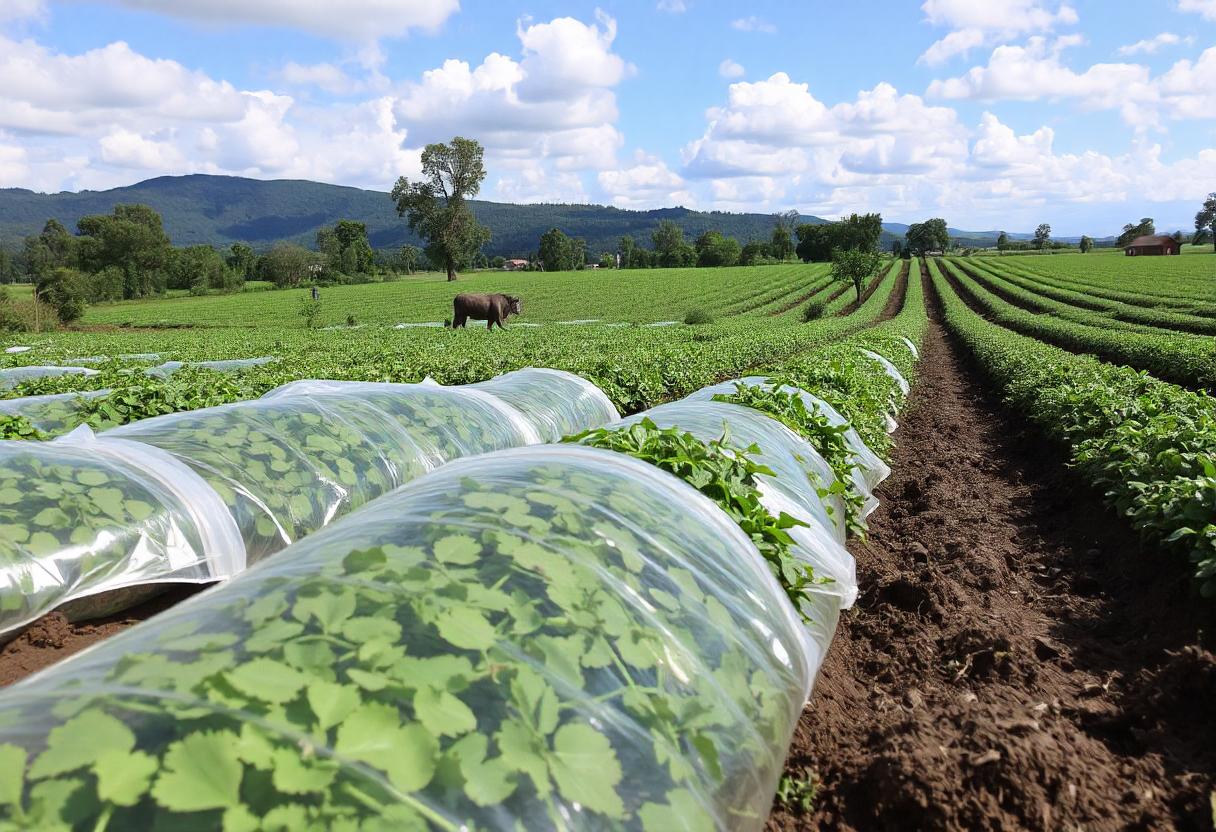
Climate-smart agriculture (CSA) is an approach designed to transform agricultural systems to support food security under the pressures of climate change. It integrates the three dimensions of sustainable development—economic, social, and environmental—by addressing food security and climate challenges. The goal of CSA is to sustainably increase agricultural productivity, enhance resilience, and reduce or remove greenhouse gas emissions where possible.
Key Principles of Climate-Smart Agriculture
Climate-smart agriculture is built on a few core principles that guide the implementation of practices. These include:
- Increasing Productivity: Improving agricultural outputs while efficiently using inputs to maximize food production.
- Enhancing Resilience: Strengthening the capacity of farmers and systems to adapt to climate change.
- Reducing Emissions: Minimizing the carbon footprint of agricultural activities through low-emission practices.
Soil Management Practices
One of the central pillars of CSA is effective soil management. Practices such as cover cropping, crop rotation, and conservation tillage help to maintain soil health, improve water retention, and reduce erosion. These practices also enhance the organic matter in the soil, which can improve its carbon storage capacity.
Agroforestry Systems
Agroforestry involves integrating trees and shrubs into agricultural landscapes. This practice can help mitigate the effects of climate change by reducing greenhouse gas emissions, improving biodiversity, and enhancing soil fertility. Trees in agroforestry systems can act as windbreakers, reduce soil erosion, and offer additional sources of income through the production of fruits, timber, or fodder.
Water-Efficient Irrigation Techniques
Water management is crucial in CSA, especially in regions experiencing water scarcity due to climate change. Practices such as drip irrigation, rainwater harvesting, and the use of drought-resistant crop varieties are key components of water-efficient farming. These techniques help optimize water use, ensuring that crops receive the right amount of moisture with minimal waste.
Conservation Agriculture
Conservation agriculture focuses on minimizing soil disturbance, maintaining soil cover, and diversifying crops. This approach reduces the need for external inputs such as fertilizers and pesticides while improving the resilience of agricultural systems to climate impacts. It also supports biodiversity and improves soil organic matter, which is essential for carbon sequestration.
Livestock Management in Climate-Smart Agriculture
Livestock production can have significant environmental impacts, including methane emissions and land degradation. CSA practices aim to reduce the environmental footprint of livestock farming by promoting better feeding practices, manure management, and the integration of livestock with crop production. Rotational grazing, for instance, allows for improved pasture management and reduces land degradation.
Use of Climate-Resilient Crop Varieties
Climate-resilient crop varieties are those that are bred to withstand the stresses associated with climate change, such as droughts, floods, and extreme temperatures. These crops can help farmers maintain yields even in adverse conditions. Developing and using climate-resilient seeds is a critical CSA strategy to ensure food security in vulnerable regions.
Integrated Pest Management (IPM)
Integrated Pest Management (IPM) is an ecosystem-based strategy that focuses on long-term prevention of pests through a combination of biological, cultural, mechanical, and chemical controls. It helps reduce the reliance on synthetic pesticides, which can contribute to greenhouse gas emissions, and promotes biodiversity by encouraging natural pest predators.
Diversification of Agricultural Systems
Diversification is a key strategy for enhancing resilience to climate change. By diversifying crops, livestock, and farming activities, farmers can reduce the risks associated with extreme weather events and changing climate patterns. Diversified systems are more resilient to pests, diseases, and market fluctuations, offering a more stable income source for farmers.
Climate-Smart Technology and Innovation
Technology plays an important role in CSA by providing farmers with tools and information to adapt to climate change. Innovations such as weather forecasting, mobile apps for farm management, and precision agriculture technologies allow farmers to make data-driven decisions that optimize productivity while reducing resource use.